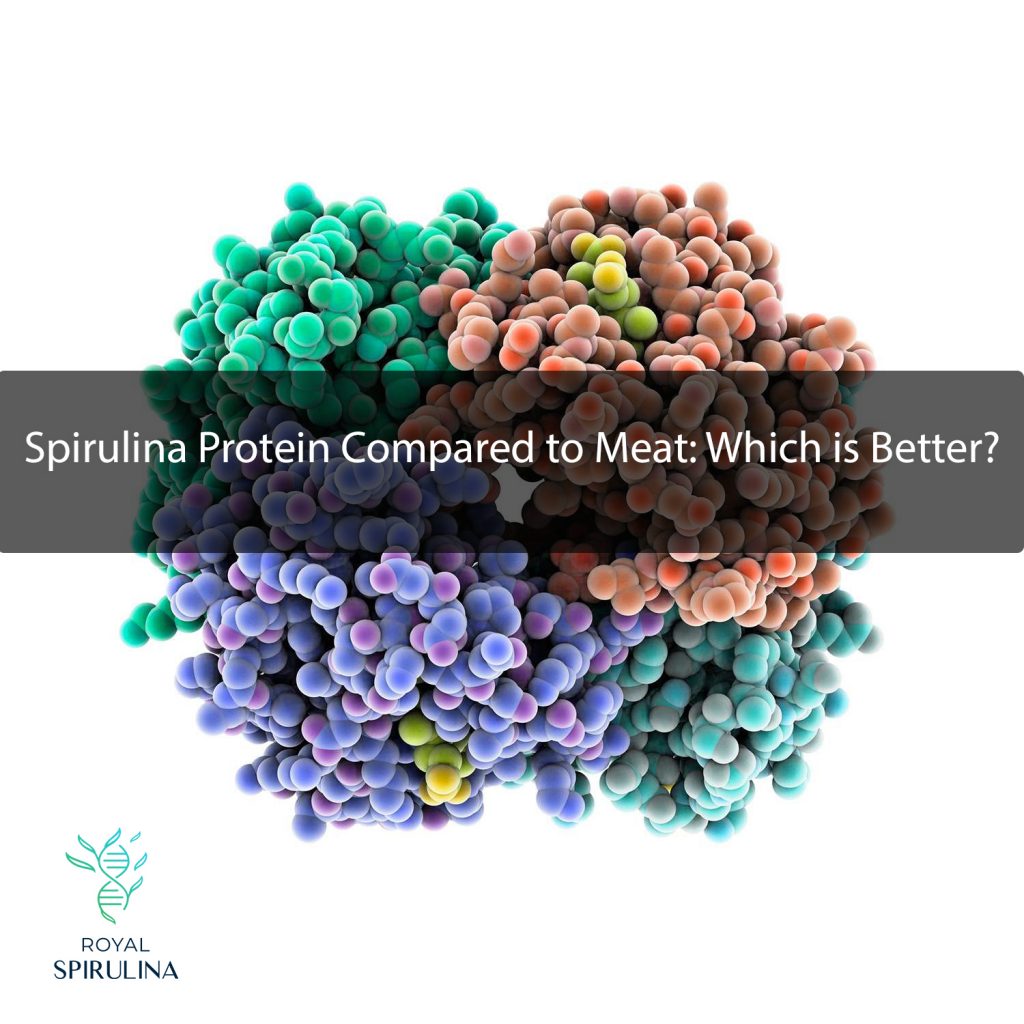
Spirulina Protein Compared to Meat: Which is Better?
Protein is a crucial nutrient for the human body, as it is necessary for building and repairing tissues. While many people associate protein with meat, there are also plant-based sources of protein, such as spirulina. Spirulina is a type of blue-green algae that is incredibly nutritious and contains a high amount of protein. In this blog, we will explore the benefits of spirulina protein compared to meat protein.
Protein Content
When it comes to protein content, spirulina is a winner. While the protein content of meat varies depending on the type and cut of meat, spirulina contains about 60-70% protein, making it one of the most protein-dense foods available. In comparison, beef contains about 25% protein, chicken contains about 20% protein, and fish contains about 18% protein.
Amino Acid Profile
Protein is made up of amino acids, which are the building blocks of protein. There are nine essential amino acids that the body cannot produce on its own and must be obtained through the diet. While meat is a complete protein source, meaning it contains all nine essential amino acids, spirulina is also a complete protein source, containing all nine essential amino acids in the right proportions.
Bioavailability
Bioavailability refers to how well the body can absorb and use the protein in a food. While meat protein is highly bioavailable, spirulina protein is even more so. This is because spirulina is a plant-based protein, which means it is more easily digested by the body than animal-based protein. This makes spirulina protein an excellent option for people with digestive issues or those who want to maximize their protein absorption.
Cholesterol and Fat
One of the downsides of meat protein is that it often comes with a high amount of cholesterol and fat. This can be a problem for people with high cholesterol or heart disease. On the other hand, spirulina is a low-fat, cholesterol-free food, making it an ideal protein source for people with these health concerns.
Environmental Impact
Finally, it is worth noting that meat production has a significant impact on the environment, from the resources required to raise and feed the animals to the waste produced by their consumption. In contrast, spirulina is a sustainable food source that can be grown in freshwater ponds with minimal resources.
| Food | Protein content per 100g |
|---|---|
| Spirulina | 60-70g |
| Beef | 25g |
| Chicken | 20g |
| Fish | 18g |
As you can see, spirulina has a significantly higher protein content compared to meat, making it an excellent protein source for those looking to increase their protein intake.
Some reasons why spirulina protein is considered healthier than meat protein:
- Low in Fat: Spirulina is a low-fat food, with only about 3% of its calories coming from fat. In contrast, meat can be high in saturated and trans fats, which can increase the risk of heart disease and other health problems.
- Cholesterol-Free: Spirulina is cholesterol-free, making it a great protein source for people with high cholesterol or heart disease.
- High in Nutrients: Spirulina is loaded with nutrients, including vitamins, minerals, and antioxidants. These nutrients help support overall health and may provide additional benefits beyond just protein.
- Sustainable: Spirulina is a sustainable food source that requires minimal resources to produce, making it a more environmentally-friendly option compared to meat production.
- Easily Digested: Plant-based protein sources like spirulina are generally more easily digested by the body compared to animal-based protein sources like meat. This means that the body can absorb and use the protein in spirulina more efficiently.
Overall, spirulina protein is a healthy and sustainable alternative to meat protein. It is low in fat and cholesterol, high in nutrients, and easily digested by the body.

Recent Comments